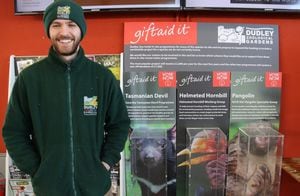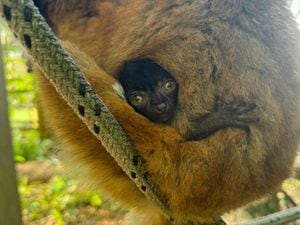Dudley Zoo donates £12,000 to help protect endangered species
Dudley Zoo has pledged to donate £12,000 to help protect three highly endangered and obscure species.

The popular attraction is looking to support projects to conserve the Tasmanian devil, the helmeted hornbill and the pangolin – but is calling for visitors to help them decide which project gets the most of the money.
Throughout 2019, all visitors adding the 10 per cent voluntary Gift Aid donation to their entrance fee will be given a token to vote in the Safari Shop.
By December 31, the box with the most counters will receive the bulk of the funding – a £2,000 donation each year for five years. The other two conservation projects will each get a one-off payment of £1,000.
Threatened with extinction from devil facial tumour disease, funds for the Tasmanian devil programme will support genetic research and promote captive breeding to restock numbers.
While the helmeted hornbill scheme will help prevent hunting of their casques and bills for ornamental purposes and the project to protect the pangolin – the world's most illegally trafficked animal for food and traditional medicines – will help change international legislation.
For the last couple of years, Dudley Zoo has asked visitors to vote on development plans, with the expansion of the Sumatran tiger enclosure and a scheme to return brown bears to the Bear Ravine winning visitors' backing.
Chris Leeson, the zoo's conservation officer, said: "Dudley Zoo already does a lot to help the wild cousins of species we house at the zoo through fundraising on various awareness days throughout the year.
“In fact last year, thanks to the generosity of our visitors and donations from the zoo, we pulled in more than £7,000 for conservation work around the globe.
"But, as a modern zoo, we also feel it is important to help animals we don’t have here, creatures which are rarely kept in captivity.
“The three species we plan to support are extremely endangered, perhaps many people may not even have heard of them, but we wanted to shine a light on more obscure creatures which need our help.”





